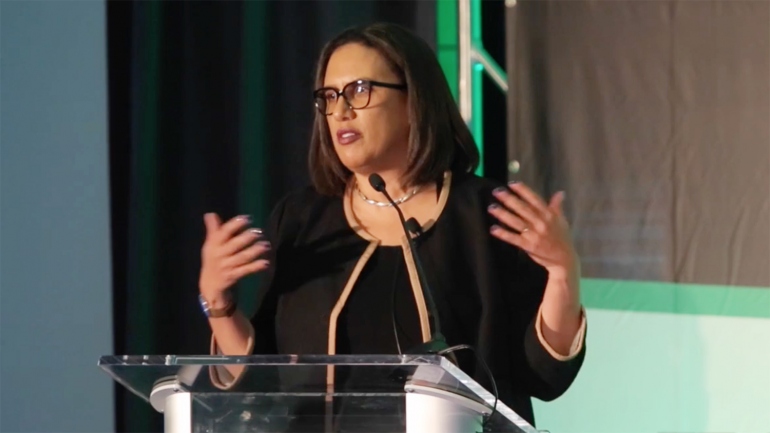
Robert Hiatt, MD, PhD, presented on the San Francisco Cancer Initiative, an example of precision population health, at the Precision Medicine World Conference in January 2017.
Scientists, clinicians and entrepreneurs shared the latest innovations and initiatives in the rapidly evolving movement to make health care more personal, predictive and preventive at the Precision Medicine World Conference (PMWC) in January.
UCSF Speakers at Precision Medicine World Conference
UCSF faculty and leaders joined the speakers at the yearly event that shares the latest innovations and initiatives in precision medicine.
UC San Francisco scientists joined about 200 speakers representing business, government, pharma and biotech who talked about advances in cancer therapies, such as liquid biopsies, gene-editing technology, clinical research informatics, deep machine learning, data visualization and digital health.
A few highlights include:
- Atul Butte, MD, PhD, professor of pediatrics, director of the UCSF Institute for Computational Health Sciences and
- Jennifer Doudna, PhD, professor of chemistry and molecular cell biology at UC Berkeley who received a PMWC award on Jan. 22, says the rapidly evolving gene-editing technique known as CRISPR/Cas9 will soon have results of its first clinical trial and that researchers will next focus on applications to treat sickle-cell anemia and eye diseases;
- Robert Hiatt, MD, PhD, professor and chair of the UCSF Department of Epidemiology and Biostatistics, says UCSF is taking a broad, long-term, transdisciplinary approach in an initiative aimed at reducing the incidence and mortality from the most common cancers in San Francisco by working with Kaiser, Sutter, Dignity Health, the San Francisco Department of Public Health and others;
- Shawn Shafer, PhD, director of Advanced Genomics at MilliporeSigma, where his group oversees the development of molecular tools for genetic research and diagnostic applications, called on the scientific community to stand up in defense of science at the March for Science; and
- Kirsten Bibbins-Domingo, MD, PhD, presented an update of the Precision Public Health Summit, saying it’s imperative that diverse populations are included in studies not only to reduce health disparities to achieve equity, but also because it leads to better science and improved outcomes.
